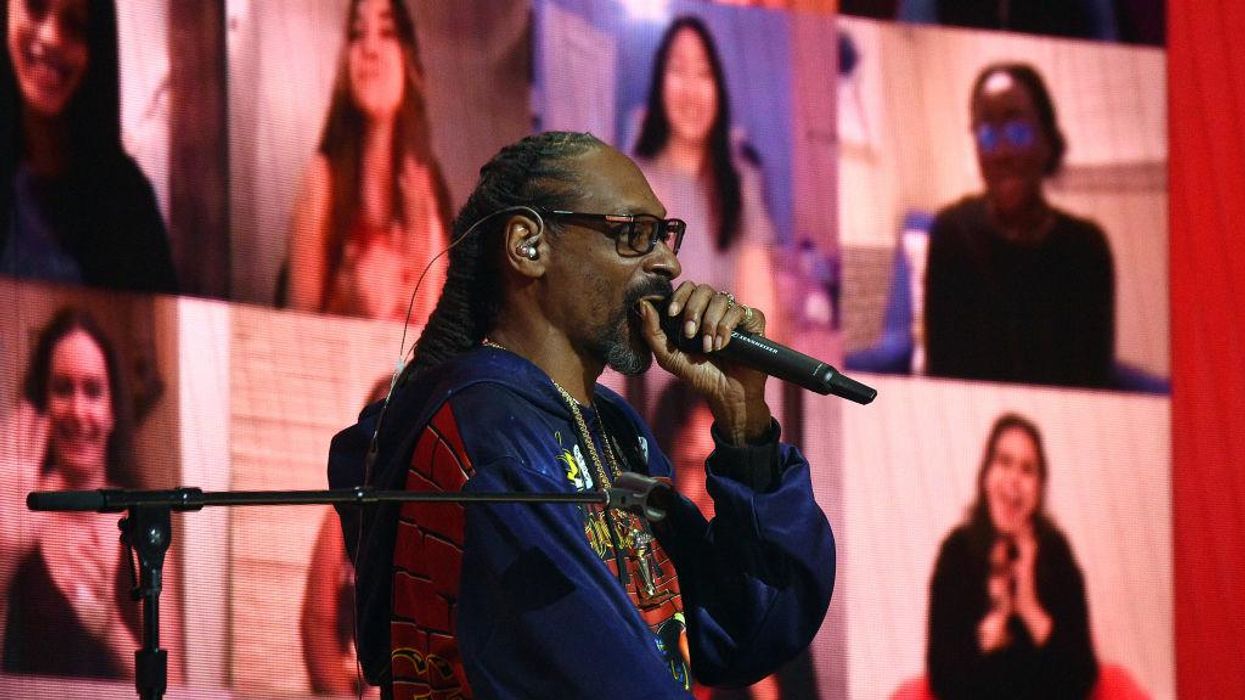
Kevin Mazur/Getty Images

The recent dust-up about the compatibility of porn with conservatism may be just the template black America needs to address the impact of hip-hop in black culture.
A fierce debate among journalists, pundits, activists, and social media influencers on the right started when an adult film actress named Brandi Love showed up at a Turning Point USA (TPUSA) event for conservative high school and college students. According to TPUSA, Love was asked to leave after parents expressed concern over the nature of her social media activity. That decision kicked off a wave of public discourse about what it means to be an American conservative in 2021.
The debate pits religious conservatives who argue that pornography and other types of sex work are degrading and incompatible with conservatism against those who claim the right should be a big tent open to anyone who supports individual freedom, free markets, and limited government. One side was motivated by ideas about morality and absolute truth; the other by pragmatism and political expediency.
The resulting tug-of-war over the definition and direction of the conservative movement was an exercise in drawing boundaries, which are the only things that demarcate territory — whether geographical or intellectual. Brandi Love forced the right to consider which beliefs and behaviors it finds compatible with its views.
Hip-hop should force the black community to do the same.
Rap music and hip-hop culture have been mainstays in America for more than 30 years. They have influenced everything from fashion to slang and been enjoyed by everyone from latchkey kids in Harlem to country kids in the heartland. Rap's broad appeal does not mean it has the same impact on everyone who consumes it. If the unofficial mantra of diversity and inclusion advocates everywhere — "representation matters" — is true, there's no reason that its corollary — "kids want to be what they see" — wouldn't apply just as much to hip-hop as it does to law and medicine. I agree with the left's argument that black kids will be more inspired to pursue certain activities and careers if they see black people, specifically, in those roles.
What did black boys in the 1990s and 2000s see? They followed Snoop Dogg's ascendance from baby-faced rapper on "Nuthin' but a 'G' Thang" to a global icon known for smoking copious amounts of weed. They also saw that his rise occurred even though he was open about his affiliation with the Crips, was charged with and acquitted of murder, bragged about being a pimp, and showed up at an award show with two scantily clad women on dog leashes.
Black girls today are in a similar situation. They see Cardi B and Megan Thee Stallion turn "WAP," a song completely devoid of any artistic value, into interviews with the Democratic nominee for president, Super Bowl commercials, and a Sports Illustrated swimsuit cover.
The message being beamed out from black artists to black children is simple: Infusing your artistry with gratuitous violence, degrading sex acts, and enthusiastic drug use leads to both commercial success in mainstream America and cultural influence in black America.
This is the epitome of "selling out." People who sell poison, whether foods that destroy the body or images that corrupt the mind, to communities that trust them are committing a terrible act of betrayal. This is not the way you treat people you claim to love, especially when you know many of your fans are children who lack the protective factors (e.g., parental supervision) that make rap a benign guilty pleasure for most people.
Black America has had its boundaries drawn for quite some time. Purveyors of sexual promiscuity and gratuitous violence are in; conservative judges and commentators are out. In life you get more of what you incentivize and reward and less of what you discourage and punish. That's why artists who rap about drugs and guns would be invited to the BET Awards but Kanye West and his MAGA hat would not.
It's time to change that. The fix isn't going to come from elected officials. It has to be a conscious effort by the people. No art form lasts forever. The supply will adjust to consumer demand if people make a conscious decision to reject any cultural output that has self-hate and self-destruction as its defining features, regardless of who produces it.